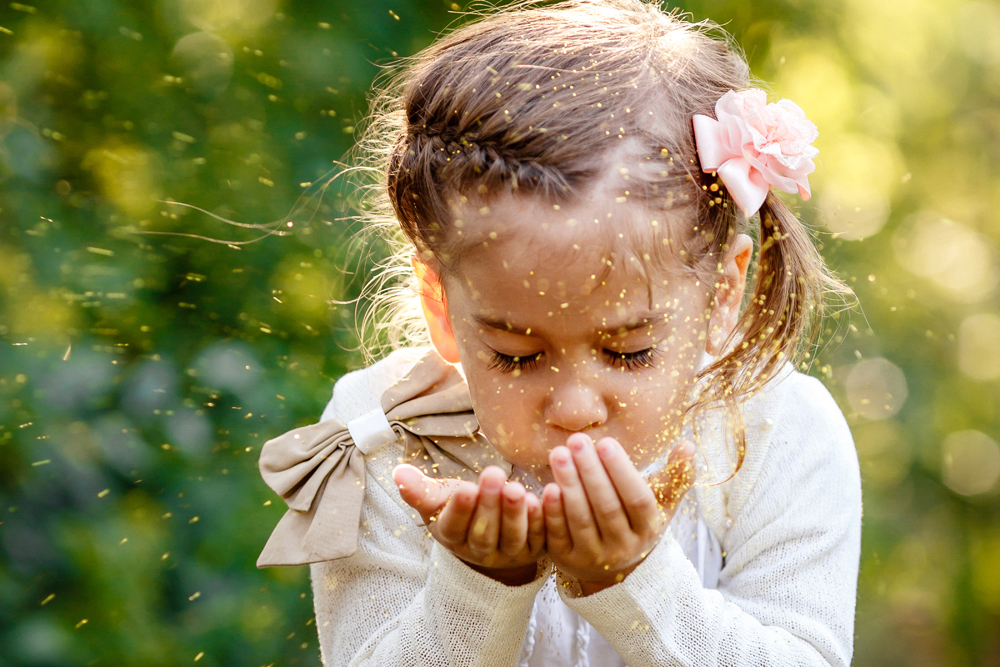Plastic, Not So Fantastic!
5 ways to reduce your plastic reliance as a family.
BY HEJIRA CONVERY, KINDICARE
Plastic makes life easy and shiny, but there is a shady side to our focus on this factory-made material.
As a global community, we create around 430 million tonnes of plastic each year, and a lot of this (like, two-thirds) goes into short-lived products that quickly become waste.
Plastic is also linked to greenhouse gas emissions, and there’s growing concern about all those teeny-tiny bits of plastic (aka micro-plastics) that are sprinkling themselves into our soil, water supply and bodies.

However, the good news is that you don’t have to be running a recycling plant or living off-grid to make positive changes!
As a family, there’s lots you can do to stop plastic leeching into the environment or landing in fill, and here are five easy ways to do just this:
1. Wash less.
Some washing can’t wait (like the kind with baby vomit on it…), but if you have a chance to wash less often, then this is a lesser-known way to cut down on plastic pollution.
The United Nations Environment Programme tells us that about 60% of material that gets made into clothing is plastic (including polyester, nylon and acrylic textiles), and every time these items go through the wash, they release micro-fibres, which are a kind of micro-plastic.

The more you wash an item, the more micro-fibres it sheds, so instead of washing a jumper that hasn’t even touched the skin, you might give it another wear, and maybe that small splodge on your kiddo’s jeans can be sponged off, instead of machine-washed?
It’s also good to know that front load washing machines cause less shedding than top-loaders, and there are special washing bags that catch fibres before they escape into the environment.
2. Shop like a pro.
A lot of us were let down by the collapse of the soft plastic recycling scheme, but collecting all those muesli bar wrappers, bread bags and frozen pea packets did get us thinking about plastic packaging, and there are ways to cut back, rather than collect, soft plastics.
Buying pantry goods that are packed in paper or cardboard is one way to do this, and you can also pile loose fruit and veg into the basket or trolley without putting it in bags first.

If you need a way to contain four roll-away cucumbers or a zillion grapes, then a reusable produce bag is handy (made from organic cotton or recycled plastic), and don’t forget your reusable shopping bags for an eco-friendly check-out!
3. Choose sustainable toys.
Barbiecore has been big, and many of us have a soft spot for plastic dolls, but toys aren’t so fun when they cause plastic pollution.
Cheap plastic toys can quickly become landfill and may contain ‘chemicals of concern,’ so you might like to consider wooden toys instead.
They’re great for tiny tots who like to ‘mouth’ items, and quality wooden toys last for years and years, before eventually breaking down into the earth.
There are also toys that put old plastic to good use, like this Miffy plush, which is made from 100% recycled PET bottles.

And Australia’s very own Mizzie the Kangaroo teething toy is worth a look, because it’s made from 100% natural rubber and can be recycled to build new roads!
4. Carefully contain your food.
Us parents are totally down with lunch boxes, drink bottles and other reusable containers, but cling wrap remains our go-to for food wrapping (especially in the fridge), because it’s quick, easy and hygienic.
It’s also a prime example of single-use plastic, so the less we use, the better!

Silicone food covers and wax wraps are two eco-friendly alternatives you could get used to, and if you really want to cling on to plastic wrap, then this advice from CHOICE may help you buy more wisely.
5. Go easy on the glitter.
Glitter makes every craft project gorgeous, but we can’t get away from the fact that these teeny, tiny sparkles are micro-plastics that get everywhere – including in our rivers, lakes, oceans and marine creatures.
Once there, they take ages to break down, so you’ll do well to avoid glitter altogether, or choose an eco-friendly version, which is made from plants, not plastic.

Little beads, buttons and other plastic decorations aren’t great for the environment either, so instead of sticking these on, consider organic options, like dried rice or pasta, jazzed up with food colouring.
Obviously, these tips are just a start.
Beating plastic pollution requires a big commitment from billions of people, but every little action helps, and it is possible for your family, and ours, to make positive changes around plastic.
And any excuse to fold less washing and avoid a glitter explosion sounds good to us!

